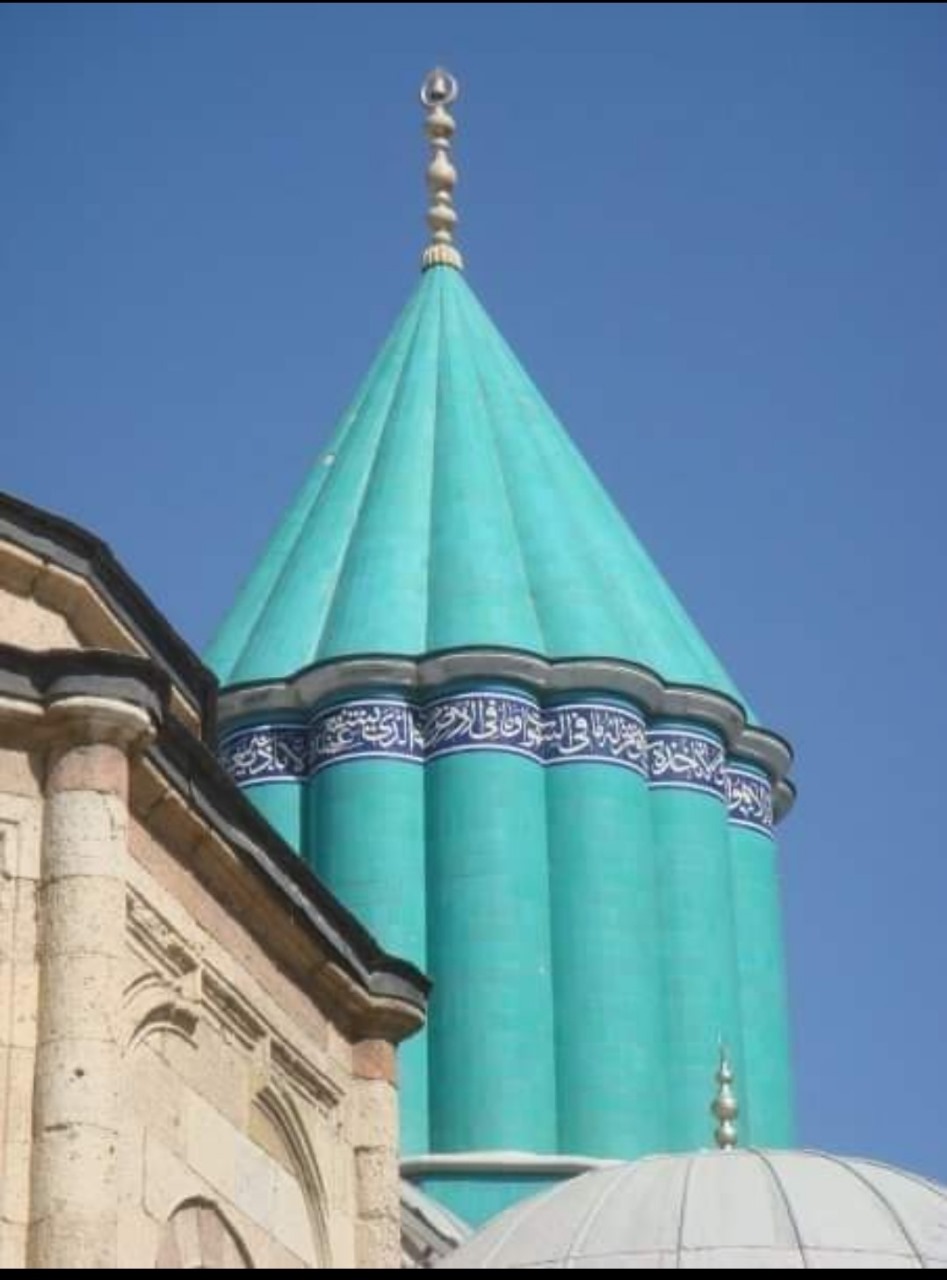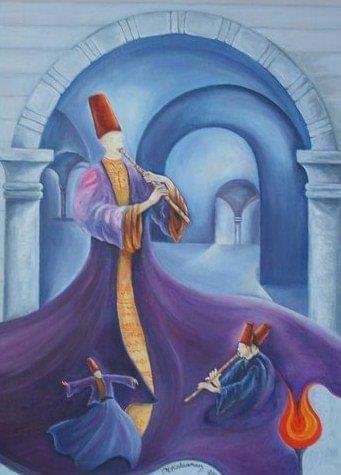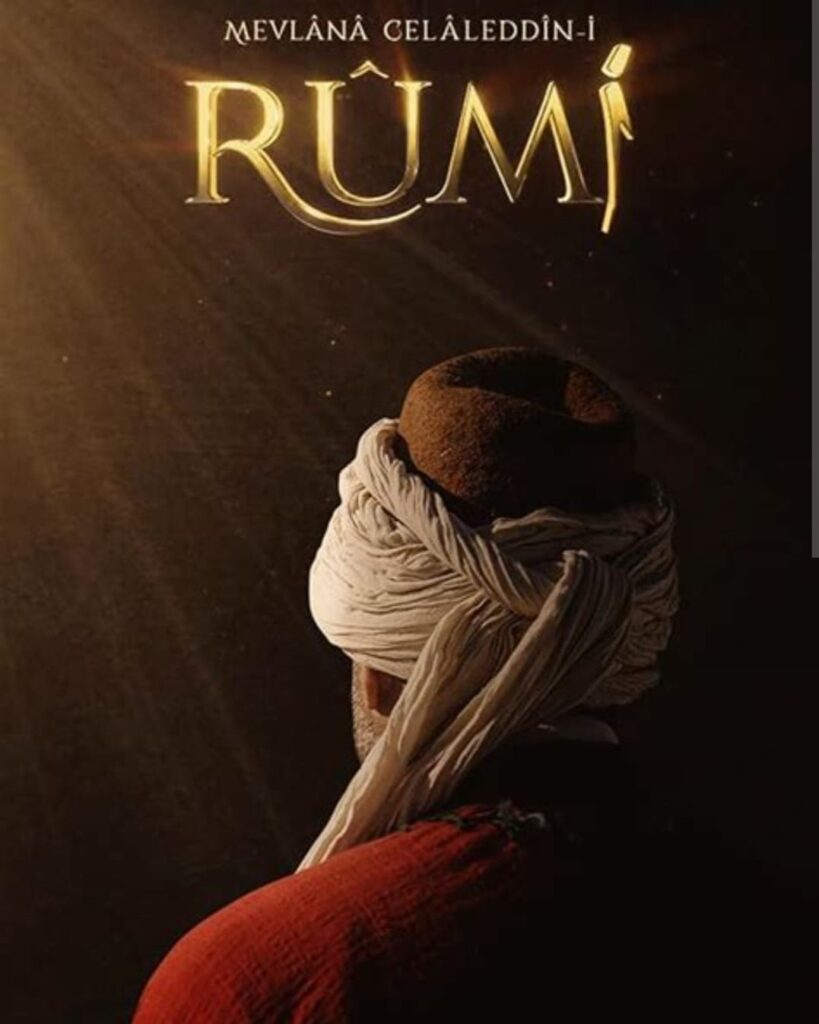Hazrat Omar and the Harpist
What is this quest which is above any pursuit
I Don’t know, if you know please tell me (1)
The state to know more than what is and what could be
He got drowned in contemplation of ZulJalal (2)
What is drowning none can know except
The sea who gets everything drowned in it
Partial reason can’t reason before the Divine
Unless permitted to know who, He is.
The Harper’s beseeching was so hard
That Divine mercy approached him at last
To engulf him and surround him all
So that he may reach eternal peace
The Harper was wordless; nothing he could speak
He said something, but he could express nothing
Ah! What a status he had achieved. (3)
A thousand lives could be sacrificed to “BE.” (4)
The sun shining high in the sky losing its energy
But His benevolence fills all empty voids. (5)
Humans get Nefs and Ruh from Him
His stream is flowing continuously from
Unknown lands: have you witnessed any?
From there everything is entering the World
From here, leaving one after the other, hurriedly (6)
O’ the Sun of my soul please
Transform the old in the new duly. (7)
Notes
It is one of the particular saying of Rumi, registering before Allah: I know nothing; you are the source of all knowledge. Please bless me with some. (2) intoxicated with the beauty of Zuljalal. ZulJalal is one of the names of Allah. It means the One who is glorious and majestic. He is the possessor of all glory and honor. He is The One who deserves to be Exalted and not denied. A'isha (ra) reported: When the Messenger of Allah ﷺ pronounced salutation, he would say: اللَّهُمَّ أَنْتَ السَّلاَمُ وَمِنْكَ السَّلاَمُ تَبَارَكْتَ ذَا الْجَلاَلِ وَالإِكْرَامِ As reported in Sahih Muslim 592a.

A window to Mathnavi Maulvi Ma’nvi
Translation and Commentary Seema Arif
Further Links for Rumi

(3) It was an exalted status, he had received God’s attention toward his poor plight, and Caliph himself had come for his relief.
(4) he was almost dead; fallen into a grave he could hope for death only. But Hazrat Omar came, and he got a reason to relive. To Be is to exist and that means living a purposeful and meaningful life.
(5) We know that the process of fission and fusion is continuing on the sun’s surface, and through this process it gets depleted of its energy. Rumi says that every night we feel that the sun is out of energy, but the very next morning it is shining again. Allah replete him of its lost energy and it shines as brighter as ever.
It also means that no one can deprive the friends of Allah of respect and honor they truly deserve. Allah is their due recompense.
(6) All ah is provider of everything in this universe. Rumi says that Allah’s blessings keep coming in the world; in contrast from the world everything goes out never to return.
(7) The last words are Rumi’s Prayer; sun of Soul is Allah who lightens our wajood with true knowledge and eliminates darkness. Rumi is seeking transformation of the earthen souls. He is requesting the rejuvenation of humanity.
Reflection
The Divine Attributes or Allah’s names have the secret to reach God’s consciousness (Ma’arifa). In this poem, the importance of “contemplation” is highlighted. It is important to contemplate upon Divine Attributes, so that we can realize His love and mercifulness, we shall fall in love with Allah and refrain from disobeying Him. It would be easier to acknowledge His power and strength. This is going back-and-forth between reverence and repentance, seeking refuge in his love and mercy. However, it is a difficult path to travel, as highlighted under:
It was reported that Umar bin Khattab asked Ubayy ibn Ka’b about Taqwa. Ubay said, “Have you ever walked on a path that has thorns on it?” Umar said, “Yes.” Ubayy asked, “What did you do then?” to which Umar replied, “I rolled up my sleeves and struggled.” Ubayy said, “That is taqwa, to protect oneself from sin through life’s dangerous journey so that one can successfully complete the journey unscathed by sin.”
Quoted in Muhammad Saed Abdul-Rahman (2009). The Meaning and Explanation of the Glorious Quran. MSA Publication Limited. p. 63
( Copyright 2024 ) Dr. Seema Arif All rights reserved.
All material on this page is Seema Arif’s original writing. Using it in any form of publication and print media without prior permission will be considered a violation of rights. When quoting research papers, proper referencing should be used.





